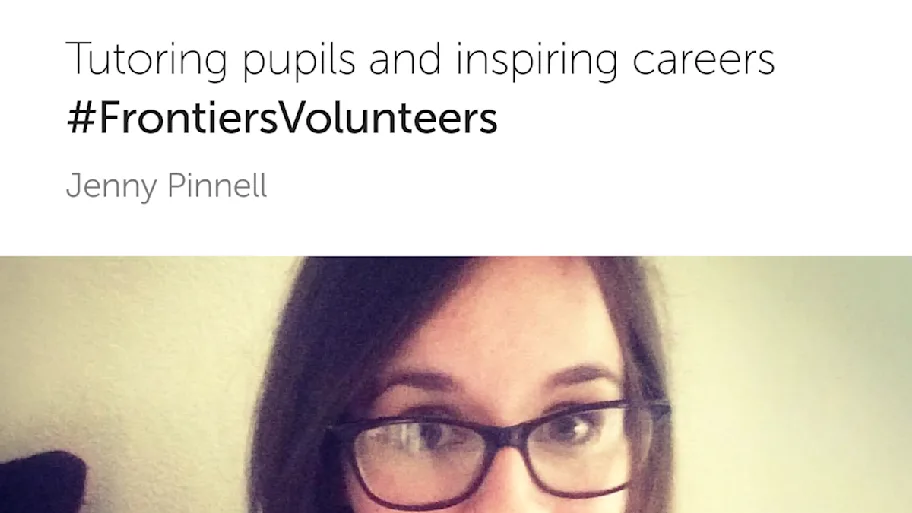
- Science news
- Featured news
- Frontiers’ volunteers: healthier and happier lives through teaching
Frontiers’ volunteers: healthier and happier lives through teaching
Frontiers’ volunteers have always been at the forefront of community and societal responses. Hannah Yang, editorial development manager of Neuroscience portfolio in China, shares her volunteering efforts in teaching students in rural areas.

Photo credit: Frontiers
“I have been doing volunteering activities for over 5 years. Every year, I go to rural areas in China to work as a volunteer teacher for the primary and middle school students there. The economic situation in such areas usually results in underdevelopment and wider educational issues, such as limited educational resources, the lack of professional and experienced schoolteachers, and the absence of family support for the children ‘left-behind’ by parents who have to work away. The children growing up in poor areas live in a very struggling environment. However, they are very willing to embrace any opportunity to receive better education. As the volunteer teacher, I would teach them the courses of music, physiological and mental health, drawing etc. I am trying to show the students a wide scope of knowledge and develop various interests and hobbies for life.
“My efforts go beyond the classroom, as I try to become friends with the children, and try to know more about their actual living situation and inner feelings. While getting to know them, I often feel touched by their natural naivete and also feel powerless and frustrated that I can do little to change their hard situation. It is especially difficult when I encounter many children, whose parents work in cities to make a living and have no choice but to leave them in hometowns to be raised by their grandparents. It is rather depressing to find that so many of the left-behind children actually have various mental and developmental problems, like ADHD and even genetic diseases. Due to the lack of basic health knowledge and care from families, their developmental problems get ignored and cannot be treated properly, which may cause the further long-term negative impact on them in their future life. Seeing this tough situation for hundreds of thousands of disadvantaged children in many areas in China, I decided to study psychology for my Master’s degree. I hope to use my own professional knowledge and network to help these children and their families to discover and treat their developmental problems, create a more advantageous growing up environment, and make them live a healthier and happier life.
“I definitely am going to carry on being a volunteer teacher and, more importantly, a friend, a family for the disadvantaged children living in challenging environments. And I also sincerely wish to gather more people, resources, and power from the whole society to dedicate to helping the children and their families and simply to make a difference!”
For more than a decade, Frontons have been showing a great passion and big heart for the most pressing world causes, both as scientists and as citizens of the world. At Frontiers, we are committed to contributing to communities in a meaningful and sustainable way and encourage our people to participate in charity _activities._

Frontiers is a signatory of the United Nations Publishers COMPACT. This interview has been published in support of the United Nations Sustainable Goal 4: Quality Education
ABOUT FRONTIERS
Frontiers is the 3rd most-cited research publisher and we publish groundbreaking discoveries by the world’s top experts. Scientists empower society and our mission is to accelerate scientific discovery by making science open. We place the researcher at the center of everything we do and enable the research community to develop the solutions we need to live healthy lives on a healthy planet.
Featuring custom-built technology, artificial intelligence, and rigorous quality standards, our research articles have been viewed more than 1.6 billion times, reflecting the power of research that is open for all. For more information, visit http://www.frontiersin.org






